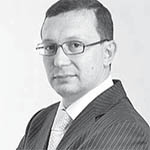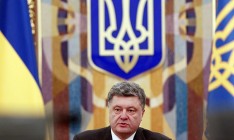Technology
defenceUkrainian army wants to build its own data center
The Defense Ministry has begun holding consultations with market players on the construction of its own data processing center (DPC), according to Director of DeNovo Maksim Ageyev. Representatives of several other major data centers also confirmed it. Representatives of the Defense Ministry withheld comments on this issue a recent conversation with Capital.
Ageyev says ministry officials have approached DeNovo for consultations on several occasions, but those meetings have thus far not produced any positive results. “We asked about their special demands, possible changes in requirements, future evolution and the project’s target value, but received no answers,” says Ageyev.
Deputy Director of the Parkoviy Data Center Denys Burduk adds that their company took part only in technical consultations and representatives of the Defense Ministry also did not mention any objectives of creating a data center. “It must be a classified facility, so it would not serve the interests of the military to disclose all the details,” said the manager.
All data centers are secured and designed for storage, processing and distribution of data. But no DPCs have the same degree of protection as military data centers. For example, the Dutch Ministry of Defense built its data center in a bunker in a small town of Kloetinge. The center is hidden in a dense woodland and the building itself is able to withstand a 20-megaton nuclear explosion and prevent penetration of substances emitted by chemical weapons to servers. The UK also has a bunker similar to that in possession of the NATO. It is called the Smartbunker.
Under the current conditions, according to Capital’s interlocutors, it would be advisable for Ukraine to build such a data center. “Somewhere in the west of the country because of the complicated situation in the east,” said Ageyev, adding that only Ukrainian military may be aware of the purpose of such a center. Director of the State Service for Special Communication and Information Protection Volodymyr Zverev also notes that there is nothing surprising in the desire of the Defense Ministry to create its own data center.
“Technology evolves, and every well-to-do company tries to build a data center for its own purposes. The Defense Ministry is no exception – it is trying to develop,” says Zverev. Then again, according to Burduk, there is no guarantee that the government will be able to provide funds for construction of such facility, while its approximate price could be US $20 – 25 mn, according to experts. In addition, creation of such a data center may take 3 – 5 years, says the director of DeNovo.
Ageyev believes that the Defense Ministry could convey its data for outsource storage to his company, but representatives of the ministry rejected such a proposal alluding to the absence of permission from the SBU (State Security Service of Ukraine). “Indeed, the military could store most of the information on leased platforms, but there is a small part of classified information which should be stored exclusively in the Defense Ministry,” Burduk noted.
 Iryna Stelmakh, Director of the Volya Data Center:
Iryna Stelmakh, Director of the Volya Data Center:
At present, complicated economic and political situation in the country and deep distrust of investors in our market are the constraining factors for the providers. And it is difficult to imagine the development of business in Ukraine without the required investments and support of the government. For development of Ukraine’s IT industry certain amendments should be introduced to the legislation in order to encourage small and medium businesses, including implementation of preferential taxation and even subsidies for companies in this sector. Today, national programs aimed at stimulating domestic demand and the development of a competitive environment must be implemented. Government projects, such as development of national databases and registries, electronic document management system and so on may become another important element for the development of the IT industry in Ukraine. Moreover, it is necessary to relax the current excessive government regulation in the industry.
 Maksim Ageyev,
Maksim Ageyev,
CEO at De Novo:
The first 6 months have been a geopolitical and economic collapse for our country. Against such a background, the decline of the IT market seems to be logical and natural. Still, some segments (e.g. outsourcing) manage to maintain positive dynamics. Based on the results of the first 6 months, De Novo’s operator businesses (clouds and commercial DPC) increased by 65% and signing the lease agreement for a commercial data center with UkrSibBank was the major deal for the first 6 months for De Novo.
My forecast for De Novo for the second 6 months is a doubling turnover in the hryvnia equivalent. We also plan to invest approximately US $700,000 in our infrastructure.






 of the agreement of syndication with Financial Times Limited are strictly prohibited. Use of materials which refers to France-Presse, Reuters, Interfax-Ukraine, Ukrainian News, UNIAN agencies is strictly prohibited. Materials marked
of the agreement of syndication with Financial Times Limited are strictly prohibited. Use of materials which refers to France-Presse, Reuters, Interfax-Ukraine, Ukrainian News, UNIAN agencies is strictly prohibited. Materials marked  are published as advertisements.
are published as advertisements.